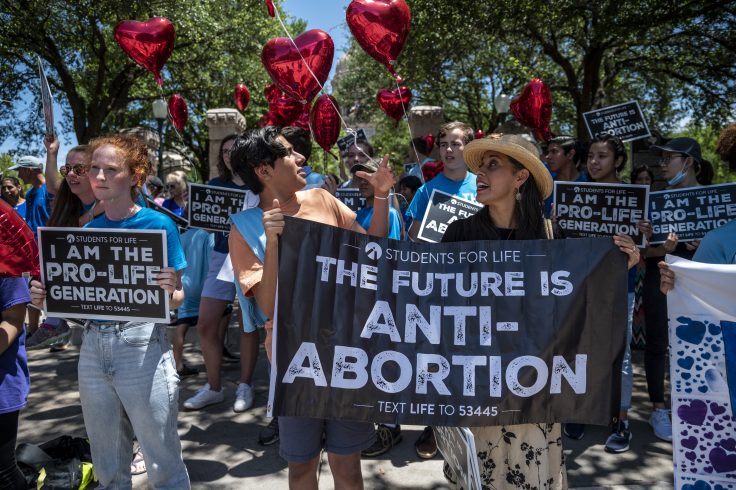Texas abortion providers asked the Supreme Court on Monday to delay implementation of a state law that bans abortion once physicians can detect a fetal heartbeat, sometimes as early as six weeks.
Lawyers for the abortion clinics said in an emergency filing that the Texas Heartbeat Act, also known as S.B. 8, is an outright ban on abortions. The law will take effect on Wednesday absent intervention from the High Court.
"There are less than two days left before Texas politicians will have effectively overturned Roe v. Wade," said Nancy Northup of the Center for Reproductive Rights. "We have filed an emergency motion in the Supreme Court to block this law before clinics are forced to turn patients away."
The appeal comes several months before the Supreme Court will hear a direct challenge to Roe in Dobbs v. Jackson Women’s Health Organization. Dobbs involves a Mississippi law that bans abortions after 15 weeks. Both cases resulted from a proliferation of pro-life legislation that followed former president Donald Trump’s three appointments to the Court.
The plaintiffs highlighted the Dobbs case in their emergency appeal, saying Texas shouldn’t get to enforce S.B. 8 before the Court decides on a 15-week ban.
"This Court’s intervention is needed to protect this Court’s ability to meaningfully decide that question," the appeal reads.
Lawyers for the state said gamesmanship on the part of the clinics is responsible for the present situation.
"Governor Abbott signed S.B. 8 on May 19, 2021. As is apparent from the face of the bill, it takes effect on September 1, 2021. Despite plaintiffs’ current fears that S.B. 8 will cause them 'profound and irreparable harm,' they waited until July 13—nearly two months after Governor Abbott signed the bill and approximately seven weeks before it takes effect—to file this suit," state lawyers told a lower federal court.
S.B. 8 is unique among abortion regulations. Executive officials like prosecutors or health inspectors are not responsible for enforcing the law. Instead, the act calls on private citizens to enforce its provisions through lawsuits against providers and those who assist them. It further provides that successful claimants should be awarded at least $10,000, payable by the defendant. Opponents of S.B. 8 call it a "bounty-hunting scheme."
Pro-life groups in Texas are prepared to enforce S.B. 8 as soon as it takes effect. Texas Right to Life set up an online portal for tipsters to report violations anonymously.
Excluding executive officials from the enforcement regime makes a legal challenge more complicated for abortion providers. To get around that problem, the plaintiffs and their ACLU attorneys sued state court judges and clerks to prevent them even hearing S.B. 8 lawsuits.
"At bottom, the question in this case is whether—by outsourcing to private individuals the authority to enforce an unconstitutional prohibition—Texas can adopt a law that allows it to do precisely that which the Constitution forbids. The answer to that question must be no," lawyers for the providers wrote in their emergency appeal.
A federal trial judge in Austin was scheduled to consider a request to block the Heartbeat Act at a hearing on Monday, but the Fifth U.S. Circuit Court of Appeals canceled that proceeding on Friday night.
The providers are now asking the Supreme Court to block S.B. 8 outright while litigation continues. Alternatively, they said the justices could partially lift the Fifth Circuit’s order and allow the trial judge in Austin to consider their case.
The case is No. 21A24 Whole Woman’s Health v. Jackson.
